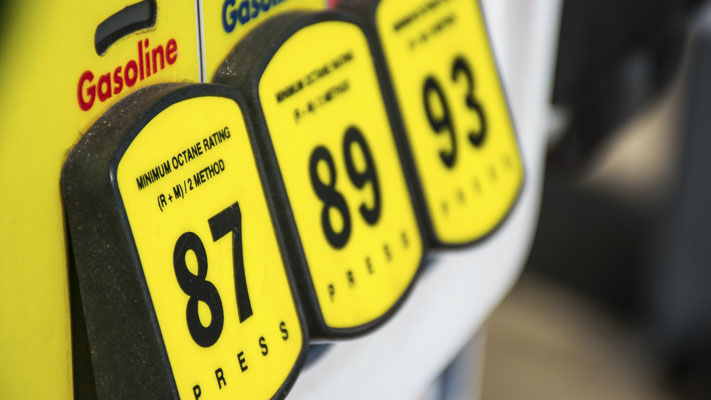
Todd Myers of the Washington Policy Center believes there is no doubt that repealing the CO2 tax will reduce government spending and there will be projects that do not go forward
Todd Myers
Washington Policy Center
If voters pass I-2117 and repeal the state’s CO2 tax, they would save billions in taxes, but would cut funding for more than 300 state employees and a range of other projects.

The Washington State Office of Financial Management (OFM) has released its assessment of the repeal of Washington’s CO2 tax, known as the Climate Commitment Act (CCA) if voters approve Initiative 2117 this fall. The projections provide a good guide to where the more than $2 billion in taxes would be spent and the priorities of supporters of the CCA.
The report does not look at the impact of the taxes on the economy of Washington state, including the impact on manufacturing industries that will be paying more for energy, for farmers who have been hit with increased fuel costs, or families who are already seeing higher costs for gasoline and home heating.
People looking at the list of projects that would be cut are likely to find a few things they like. For example, we have argued that funding for salmon recovery projects should be increased (although we should also reduce the bureaucracy and regulation that is driving the cost of those projects up). However, we believe those projects could have been funded using the large increase in state revenue that existed before the more than $2 billion tax increase imposed by the CCA.
Every time a supporter of the CO2 tax argues that some important program will be cut, it should be remembered that those programs weren’t important enough to fund from the state’s existing revenue. Between the 2019-21 biennium and 2023-25, the state’s operating budget increased from $51.86 billion to $71.95 billion (not adjusted for inflation). Transportation and Capital budgets also saw increases. Despite a large increase in state revenue, none of these programs were a priority until new funding appeared.
OFM’s report notes that passage of I-2117 “will reduce state revenue from carbon allowance auctions by $3.8 billion and reduce state expenditures by $1.7 billion between the effective date of the initiative and June 30, 2029.” The report outlines what programs would not be funded if the taxes are eliminated.
In the current biennium, there would be a reduction of approximately 318 state employees across several agencies. Many of these employees would be involved in managing the CCA, grant programs, planning, and other activities.
The funding that would be cut in the near term is primarily in three areas: transportation, various grants, and habitat projects.
Much of the transportation spending that would be eliminated in 2025 relates to paying for the very expensive electric ferries, including $42 million for electrification of ferry docks and funding new electric ferries. An additional $32.9 million goes to projects that include funding to “complete the Guemes Island ferry replacement,” which is also projected to be electric.
Despite the insinuation of some legislators that funding would go to roads and bridges, funding those projects is actually prohibited by the CCA. Instead, there is about $30 million for public transit facilities, another $40.9 million for a range of things including bike lanes, pedestrian paths, and even electric fire engines. There’s even $1 million for “Transportation planning for the 2026 World Cup” games in Seattle.
Some of the funding goes to projects that are almost entirely wasteful. For example, $25 million for planning for “Cascadia high-speed rail,” a project that is likely to be a boondoggle, as it has been in California.
There is also a list of projects that fund forests, salmon recovery, and other “natural” projects that would be cut. Notably, one of the claims made by supporters of the CO2 tax is that the funding would help reduce the catastrophic wildfires that have made our summers smoky in recent years. Despite that claim, there is only $7.5 million in funding – less than one percent of total spending in the biennium – would go to fire prevention and forest health. Almost as much, $7 million, would go to “algae and blue carbon” projects.
About $58 million would go to fund salmon recovery projects. This amounts to about a 12 percent increase in funding for salmon-recovery projects. Notably, $25 million of that is to replace funding that was previously cut from science-based grants from the Salmon Recovery Funding Board in favor of politically chosen projects. It is good that the funding is being restored, but it never should have been removed in the first place.
There is also a list of potential projects to improve energy efficiency and building projects around the state. As we’ve noted before, the are not requirements that these projects actually deliver the results supporters of the CO2 tax claim they will provide. For example, the “Community Decarbonization” grants managed by the Department of Commerce don’t prioritize decarbonization. A $4 million expenditure to prevent flooding on the Nooksack goes entirely to government planning, not actual projects on the ground.
For many of the promised grant programs, the actual grant guidelines have not been written, so it is impossible to know whether the titles of the projects will match how the money is actually spent.
There is no doubt that repealing the CO2 tax will reduce government spending and there will be projects that do not go forward. Washington’s history of government spending on climate projects has been very poor, and the state has consistently fallen short of promised benefits. Without any requirements that this new round of spending yields the promised results, that pattern of failure is likely to repeat.
Todd Myers is the vice president for research at the Washington Policy Center.
Also read:
- Letter: ‘There will be consequences’Hazel Dell resident Bob Zak criticizes Democratic lawmakers for advancing ESSB 5181, arguing it undermines parental rights and defies biblical principles.
- Op-Ed: La Center Schools — Committed to families and their childrenIn a public letter, the La Center School Board and Superintendent Peter Rosenkranz affirm their commitment to supporting families and honoring both state law and community values amid state-level scrutiny.
- Letter: Mayor blames others on homelessness problem in Vancouver while she has enabled a lawless encampment zoneVancouver resident Peter Bracchi urges city leaders to enforce laws and end permissive policies that have allowed unsafe encampments to overrun public spaces near the Share House.
- Letter: ‘Look it up for yourself’Camas resident Anna Miller encourages skeptics of Elon Musk’s claims about government waste to do their own research using official resources.
- Opinion: Defending the indefensibleNancy Churchill argues that Washington’s lawsuit against a sheriff cooperating with ICE reveals a deeper political agenda that puts public safety at risk.











If even 1/2 of what Todd wrote here is true, the best thing Washington voters can do is PASS I-2117 and get rid of the FAKE CO2 tax. The whole CO2 tax is yet another state government SCAM on taxpayers to steal hard earned salaries and wages and divert the money to bs programs that just expand an already BLOATED state government and bureaucracy.